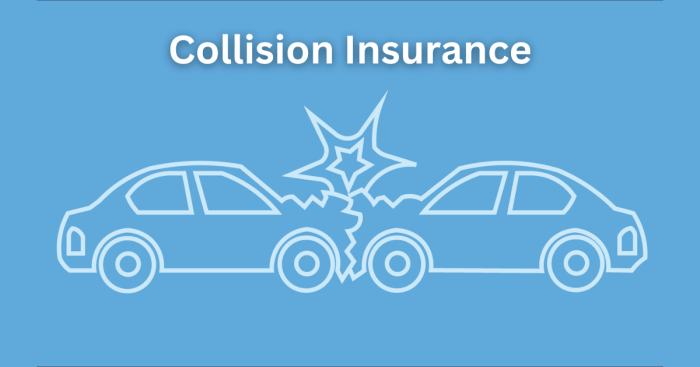Is collision insurance worth it? This crucial question often perplexes drivers as they navigate the complex world of insurance policies. Let’s delve into the intricacies of collision coverage to determine its true value.
As we unravel the layers of collision insurance, we’ll uncover essential insights that shed light on its significance in protecting your vehicle and finances.
Overview of Collision Insurance

Collision insurance is a type of auto insurance coverage that helps pay for repairs or replacement of your vehicle if it’s damaged in a collision with another vehicle or object. It is designed to protect you financially in case of accidents that involve your car.
Collision insurance covers damage to your vehicle resulting from a collision with another vehicle, a stationary object, or a rollover. This coverage typically applies regardless of who is at fault in the accident. It does not cover damage due to vandalism, theft, or natural disasters.
Difference between Collision and Comprehensive Insurance
- Collision Insurance: Covers damage to your vehicle resulting from a collision with another vehicle or object.
- Comprehensive Insurance: Covers damage to your vehicle from non-collision incidents such as theft, vandalism, fire, or natural disasters.
Factors to Consider
When deciding whether collision insurance is worth it for your vehicle, there are several factors to take into consideration. From the type of vehicle you drive to your driving habits, each element plays a role in determining the cost-effectiveness of collision insurance.
Type of Vehicles Benefiting Most from Collision Insurance
- Luxury vehicles: Expensive cars with high repair costs are prime candidates for collision insurance to protect your investment.
- New vehicles: If you have a brand new car with a high market value, collision insurance can help cover repairs in case of an accident.
- Leased vehicles: Many lease agreements require collision coverage to protect the lessor’s investment in the vehicle.
Scenarios Where Collision Insurance May be Necessary
- Urban driving: If you frequently drive in congested areas or areas with high accident rates, collision insurance can provide peace of mind.
- Inexperienced drivers: New or young drivers may benefit from collision insurance to cover potential accidents due to lack of experience.
- Harsh weather conditions: If you live in an area prone to extreme weather, collision insurance can help cover damages from hail, snow, or ice storms.
Cost-Effectiveness Based on Driving Habits
- Low mileage drivers: If you rarely drive or have a short commute, collision insurance may be less cost-effective as the likelihood of an accident is lower.
- Safe drivers: Those with a clean driving record and a history of safe driving may find collision insurance to be less necessary as they have a lower risk of accidents.
- High-risk drivers: If you have a history of accidents or traffic violations, collision insurance can be more cost-effective as the likelihood of needing to make a claim is higher.
Coverage Limits and Deductibles

When it comes to collision insurance, understanding coverage limits and deductibles is crucial for making informed decisions about your policy. Coverage limits determine the maximum amount your insurance company will pay for damages resulting from a covered collision, while deductibles are the amount you must pay out of pocket before your insurance kicks in.
Coverage Limits in Collision Insurance
In collision insurance, coverage limits typically refer to the maximum amount your insurer will pay to repair or replace your vehicle in the event of a covered accident. This limit is predetermined when you purchase your policy and can vary based on your specific coverage needs. It’s important to choose coverage limits that adequately protect you in case of a severe collision while also considering your budget and financial situation.
Impact of Deductibles on Collision Insurance Premiums
Deductibles play a significant role in determining your collision insurance premiums. A deductible is the amount you agree to pay out of pocket before your insurer covers the rest of the claim. Generally, higher deductibles result in lower premiums, while lower deductibles lead to higher premiums. It’s essential to strike a balance between your deductible amount and premium cost to ensure you’re adequately protected without breaking the bank.
Effect of Different Deductible Amounts on Policy Costs, Is collision insurance worth it?
Let’s consider an example to illustrate how different deductible amounts can affect your collision insurance costs. Suppose you have a $500 deductible, and your annual premium is $1,000. If you increase your deductible to $1,000, your premium may decrease to $800. However, if you lower your deductible to $250, your premium could increase to $1,200. By adjusting your deductible amount, you can customize your policy to align with your budget and coverage needs effectively.
Alternatives to Collision Insurance: Is Collision Insurance Worth It?

When considering whether collision insurance is worth it, it’s important to explore alternative options that may better suit your needs and financial situation.
Self-Insurance
One alternative to collision coverage is self-insurance. This involves setting aside funds to cover potential damages to your vehicle instead of paying for a collision policy. While self-insurance can save you money on premiums, it also means taking on the risk of paying for repairs out of pocket.
Comparison with Other Types of Coverage
It’s essential to compare collision insurance with other types of coverage like liability and uninsured motorist. Liability insurance protects you if you’re at fault in an accident and covers the other party’s damages. Uninsured motorist coverage steps in when you’re in an accident with a driver who doesn’t have insurance. These alternatives may provide different benefits and cost considerations compared to collision insurance.
Pros and Cons of Not Having Collision Insurance
- Pros: Not having collision insurance can save you money on premiums, especially if you have an older vehicle with a lower value. You may also avoid the hassle of dealing with insurance claims and deductibles.
- Cons: Without collision insurance, you are responsible for covering the cost of repairs or replacement if your vehicle is damaged in an accident. This can result in unexpected financial strain and difficulty getting back on the road quickly.
In conclusion, weighing the benefits and costs of collision insurance is essential for every driver. By understanding its nuances and evaluating your individual needs, you can make an informed decision that ensures peace of mind on the road.
When it comes to comparing liability insurance rates , it’s important to shop around and find the best coverage for your needs. Different insurance companies offer different rates, so doing your research can save you money in the long run.
For beginners in liability car insurance , understanding the basics is crucial. Liability coverage helps protect you financially if you’re at fault in an accident. It’s important to know the minimum requirements in your state and consider additional coverage options for extra protection.
When it comes to liability insurance for SUVs , it’s important to consider the unique risks associated with larger vehicles. SUVs can cause more damage in an accident, so having adequate liability coverage is essential to protect yourself and your assets.



